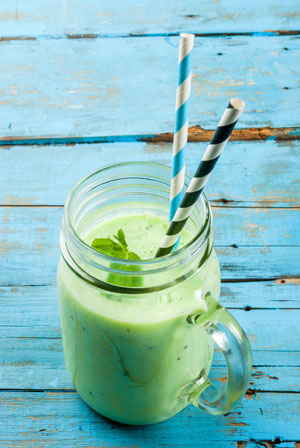Let’s get real, the pandemic has had huge impacts on the way we all live our day-to-day lives. The entire planet was on pause to allow each of us to stop and find our way out, however, it left many of us feeling somewhat drained and empty of energy.
Whether it’s balancing a career, family, healthy lifestyle, never-ending to-do lists or an online social media presence, it forced us to realize that the human body was not designed to be in such a constant state of stress, and has not caught up to this new way of living. For this reason, fatigue is something a lot of us, including children, experience on a daily basis.
Fatigue is a symptom of a range of medical conditions and it can also be the result of some lifestyle choices (lack of nutrients in the diet and physical activity).
With proper hydration, nutrition (with supplements), adequate sleep, exercise, and stress management; fatigue should be resolved. If it does not, then it may be time to consult your health practitioner to evaluate possible vitamin deficiencies or more severe health issues that need to be addressed.
Lifestyle factors to avoid:
- Lack of sleep
- Excess caffeine
- Poor diet (deficiency in mood and energy-boosting nutrients)
- Sugar overload
- Lack of physical activity
- Emotions, stress, grief
- Lack of Vitamin D
- Medications
- Smoking and drug/alcohol abuse
Health condition factors:
An underlying condition or a side effect of medications can result in feeling exhausted and constant fatigue. It could also be due to underlying disease, the primary symptoms of the ailment may be so prominent that secondary symptoms, like fatigue and low energy levels, are overlooked.
Solutions
Exercise
Although exercise may feel like the last thing you want to do while feeling exhausted, studies have shown that it’s the most effective way to boost energy. In fact, scientists found exercising improves the function and efficiency of your heart muscles and lungs and prolongs energy in the long run.
Exercise is also what activates your lymphatic system, supports immunity, improves metabolism, helps you sleep better, which are all factors that have a significant impact on energy level as well.
Yoga / Stress management
As a yoga teacher, I can honestly say that my practice has enabled me to adapt to life’s everyday challenges. I’ve personally seen people go from feeling down to feeling better after only one session. The practice of yoga not only works on the body but on the emotional aspect, combining physical strengthening, flexibility, and clear-mindedness with proper breathing techniques are all key factors that greatly contribute to our well-being.
 Deep-breathing techniques in yoga have also been shown to improve respiratory and cardiovascular efficiency, thereby increasing oxygen and energy. Deep-breathing is another easy and simple practice, it activates the rest and digest (parasympathetic) response in the autonomic nervous system which promotes relaxation and therefore improves mood and energy. Try to implement these on your morning routine to reap its benefits. The more you do it, the more centered you’ll become and will be able to manage stressful situations.
Deep-breathing techniques in yoga have also been shown to improve respiratory and cardiovascular efficiency, thereby increasing oxygen and energy. Deep-breathing is another easy and simple practice, it activates the rest and digest (parasympathetic) response in the autonomic nervous system which promotes relaxation and therefore improves mood and energy. Try to implement these on your morning routine to reap its benefits. The more you do it, the more centered you’ll become and will be able to manage stressful situations.
A good night sleep
As expected, a sleepless night spent tossing and turning will leave you feeling fatigued the next day. Sleep is the time where the brain processes and stores daily information. It is a crucial moment where the body repairs and cleanses from the damage it is exposed to during the day. When we lose sleep, we feel lethargic, forgetful, fatigued, suffer from brain fog, and get irritable.
Solutions :
- Avoid caffeine after noon (effects of caffeine can last up to 12 hours).
- Try some deep long stretches before going to bed (yoga).
- Practice a few minutes of deep breathing exercises in bed (pranayama).
- Turn off electronics with a blue light at least 2 hours before bed or use an app to decrease blue light.
- Try to have a regular sleep schedule: wake up and go to sleep at the same time every day, including weekends, if possible, to help the body regulate its circadian rhythm.
- Keep a journal near your bed to jot down anything that comes to mind or that keeps you up. Use it as a morning gratitude journal.
- Drink herbal tea: valerian, passionflower, holy basil, and chamomile which have sedative-like effects.
Reduce Alcohol Consumption / Quit smoking
Several studies show alcohol induces temporary sleepiness; it diminishes the quality of sleep due to repeated nighttime awakenings it causes.
It’s no surprise that cigarettes are one of the worst habits for our health. Smoking increases the risk of cardiovascular disease, cancer, lung disease, and stroke. Furthermore, cigarettes contain a heavy load of toxins that interfere with your lung’s ability to absorb oxygen. The lungs become fatigued and this leads to low oxygen saturation in the blood, leaving you feeling tired. In addition, nicotine has been shown to cause sleep apnea which further depletes your energy stores. The solution is don’t smoke.
Nutrition is Key
Good nutrition is a key contributor to fuel our body with energy. Minerals and vitamins found in vegetables and fruits give energy, whereas processed foods take a lot more energy to digest since the body does not recognize as “food”.
Solutions
Avoid sugary snacks
Starting your day with high glycemic foods may cause a dip in blood sugar levels in the afternoon (sugar crash). Think of the impact it has on kids in school, they lose their concentration, become agitated and miss important information leading to increased stress during exam time… The sugar crash causes a rapid rise in blood glucose levels and tells the pancreas to produce a large amount of insulin to get the sugar out of the blood and into the cells, which leads to a subsequent dip in sugar and in energy.
Better to opt for fiber-rich foods like oatmeal, low sugar fruits like berries, and Omega 3 fatty rich foods like chia pudding or flax seeds to keep the blood sugar levels stable throughout the day.
Drink Water
The body often confuses hunger with thirst. Often when we get that afternoon crash, we tend to reach for more caffeine. Always have a 1L bottle handy with you and sip it between meals to ensure you feel hydrated and energized throughout the day.
Eat Green Leafy Veggies
Cruciferous vegetables like kale, broccoli, and cauliflower are the most nutrient-dense foods on the planet. Having salads, steamed or vegetable juices are rich in minerals like magnesium and calcium and vitamins that supply your cells with the energy.
Supplements: Gandalf Spirulina / Astaxanthin
There are a variety of supplements and nutraceuticals that may help to boost energy and reduce fatigue. There is no ‘magic-pill’ to stop chronic fatigue, however a combination of lifestyle changes, healthy eating, and dietary supplements is a winning combination worth exploring.
These are products that help to increase the activity of neurotransmitters or reduce their metabolism, thus improving the levels of dopamine or serotonin in your brain. Dopamine and serotonin help to support a healthy mood as well as to improve your energy levels. Examples include supplements like L-Tyrosine, Phenylethylamine (PEA) and CDP-Choline (Citicoline).
All of these 3 key amino acids are found in Gandalf Spirulina. In fact, Spirulina is a Super Food that contains all of the essential amino acids, which makes it a complete protein source, popular among vegetarians, vegans, and people who are wanting to increase their nutrient intake safely.
Spirulina is also a great source of essential fatty acids, vitamins, and minerals including a number of trace minerals. Spirulina is high in chlorophyll and the anti-oxidant phycocyanin and can strengthen the blood, protect against free radicals, and support immune function. Adding Spirulina to a morning shake/smoothie is a perfect way to boost your energy to start your day right!
Nutraceuticals that improve energy levels on a cellular level
These are supplements that work more systemically, improving energy production on a cellular level, throughout your body. Examples include powerful antioxidants like Gandalf Astaxanthin.

Astaxanthin is a marine-based powerful antioxidant found in sea plants and sea animals. It has been crowned "King of the Carotenoids" due to its numerous benefits, and has proven to be:
- 6,000 times higher than vitamin C
- 800 times stronger than CoQ10
- 550 times higher than tea catechins
- 75 times stronger than alpha lipoic acid
 Astaxanthin provides superior cell membrane protection which protects the entire body. What makes it special is its unique molecular structure. It incorporates both oil and water-soluble components within a single molecule. This enables it to protect both parts of the cell and provide exceptional antioxidant and anti-inflammatory protection to the entire cell. Polar antioxidants like Vitamin C and lipid antioxidants like beta carotene cannot offer the same level of defense.
Astaxanthin provides superior cell membrane protection which protects the entire body. What makes it special is its unique molecular structure. It incorporates both oil and water-soluble components within a single molecule. This enables it to protect both parts of the cell and provide exceptional antioxidant and anti-inflammatory protection to the entire cell. Polar antioxidants like Vitamin C and lipid antioxidants like beta carotene cannot offer the same level of defense.
Like Spirulina, the properties of Astaxanthin are such that NASA has shown interest in integrating this exceptional antioxidant into its astronauts’ diet. Astaxanthin could, among many other benefits, fight against radiation exposure, the negative effects of the absence of gravity on the eyes, the cardiovascular system and the reduction of bone mass. One more reason why you should look into it
In summary, there are many ways to improve your energy levels and beat fatigue. However, the most important step is to start by understanding the underlying cause of your fatigue. Knowing this, it will help you to better understand which course of treatment to pursue.
Did you know that if we count all the days from our birth to 100 years of living on this planet, it equals 36, 500 days. Can you really afford to spend some of those days feeling lethargic and not feeling your Best Self every single day?
Super Food for thought!
The Gandalf Team
References :
https://pubmed.ncbi.nlm.nih.gov/3820066/
https://bmcpublichealth.biomedcentral.com/articles/10.1186/s12889-019-6929-4
https://www.ncbi.nlm.nih.gov/pmc/articles/PMC4263155/
https://www.ncbi.nlm.nih.gov/pmc/articles/PMC6084775/
https://pubmed.ncbi.nlm.nih.gov/8709678/




